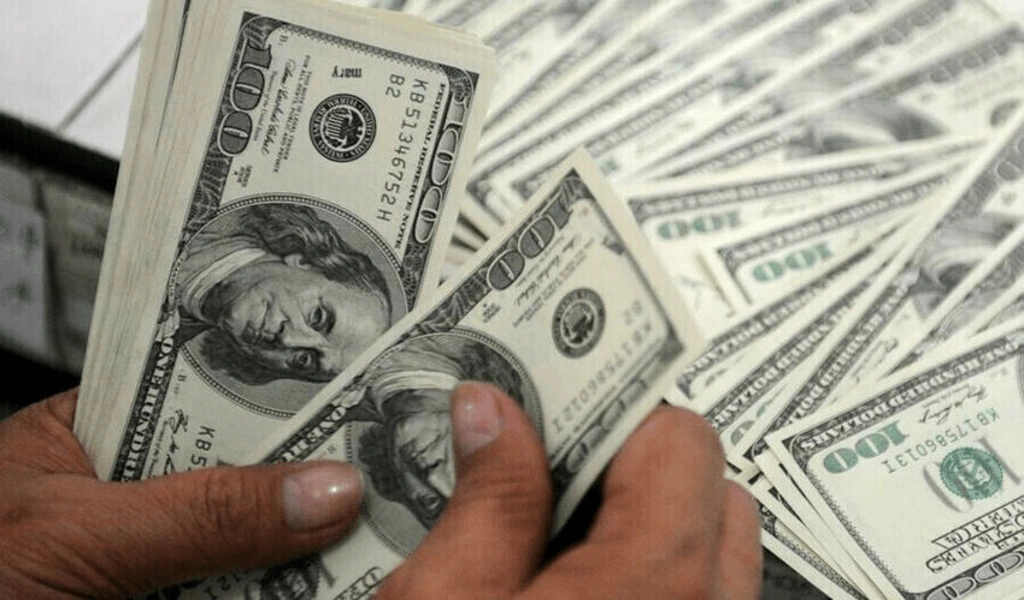Business
Dollar Gains, Stocks Slip as Fed Officials Talk tough on Rates

(CTN News) – On Thursday, when hawkish comments from Federal Reserve officials reminded investors that the job market in the United States is still tight, the dollar increased, and equities markets declined.
The pound fell as Britain attempted to put its catastrophic recent fiscal experiment behind it with a more austere-looking budget. A persistent recession and concerns about rising interest rates also shook European markets.
As initial enthusiasm over Siemens’ (SIEGn.DE) profits subsided and concerns grew that the European Central Bank would soon delay rate rises, markets in Europe slumped. More claims that rates are not high enough to calm inflation-pressurized stocks Fed officials.
According to Subadra Rajappa, director of U.S. rates strategy at Societe Generale in New York, “the narrative has swiftly turned to potentially a more modest route to inflation next year and what would happen if there is a major slowdown in growth and a recession.”
According to James Bullard, president of the St. Louis Fed, rate increases so far “have had a very modest impact on observed inflation,” The Fed should continue increasing rates by at least another full percentage point.
At an economic seminar in Louisville, Kentucky, Bullard said that tougher assumptions would suggest rates beyond 7%, and even “dovish” assumptions would call for rates to climb to at least near 5%.
The market expected the Fed’s top terminal rate to be at or slightly over 5% in May and June. However, the market is factoring in a terminal rate that drops to 4.555% by the end of 2023, assuming that growth will decelerate due to inflation.
Dollar Rate increases should continue until it is obvious that inflation has peaked, according to Minneapolis Fed President Neel Kashkari.
The pan-European STOXX 600 index (.STOXX) dropped 0.42%, while MSCI’s global stocks index (.MIWD00000PUS) lost 0.65%.
However, both indexes rose 3.9% for the month because of better-than-expected results amid concerns about a eurozone recession.
Fears that the Fed will overtighten led to a decline in the Dow Jones Industrial Average (.DJI), the S&P 500 (.SPX), and the Nasdaq Composite (.IXIC) on Wall Street.
According to American statistics, fewer people applied for unemployment benefits last week, a sign that the work market is still tight.
The dollar, which fell 3.7% last week, was made stronger by expectations of rising rates.
The yen declined against the dollar by 0.45% to 140.19, while the euro dropped 0.26% to $1.0365.
The day after the new British government unveiled a new budget proposal that included tax increases and expenditure cutbacks totalling 55 billion pounds ($64.93 billion), the pound’s value fell 0.35 percent to $1.1866.
According to Joe LaVorgna, chief U.S. economist at SMBC Nikko Assets in New York, worries over the economy’s future exacerbated the inverted yield curve, which suggests investors are preparing for a recession while simultaneously expecting lower rates on longer-dated securities.
Because economic growth will slow down and drag pricing power down, the Stocks market seems to be telling us that inflation will be much lower in the future.
Since peaking at 4.338% a month ago, the yield on benchmark 10-year Treasuries has decreased by more than 50 basis points. The two-year yield has stayed much higher.
As the yield on 10-year notes increased 7.9 basis points to 3.773%, the disparity between the rates on two- and 10-year Treasury notes, which is sometimes seen as a sign of an impending recession, widened to -68.9 basis points.
According to LaVorgna, “the slope of the yield curve is telling us the Fed is about to make a policy pivot.”
As COVID-19 cases in China grew in number, and the prospect of an increase in U.S. interest rates impacted demand, oil prices plummeted more than 3%.
U.S. oil futures dropped from $3.95 to $81.64 a barrel. Brent decreased by $3.08 to close at $89.78.
U.S. gold futures ended at $1,763 per ounce, down 0.7%.
To reach $16,632.00, bitcoin dropped 0.13%.
Related CTN News:
Oil Prices Dip as China Demand, Recession Concerns Outweigh Supply woes
































